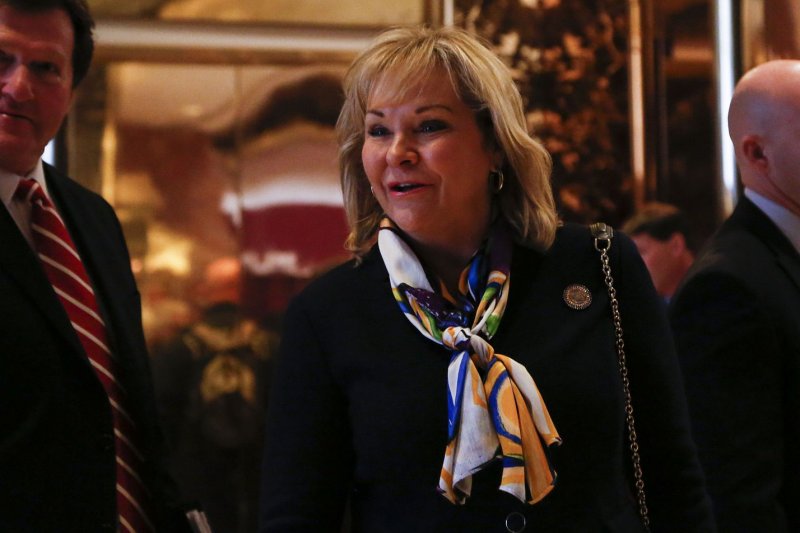Oklahoma Gov. Mary Fallin draws criticism from oil and gas trade group for raising production taxes in an effort to close a gap in the state budget. Pool Photo by Aude Guerrucci /UPI |
License Photo
June 1 (UPI) -- The budget for fiscal year 2018 in shale-rich Oklahoma sends about $7 billion to state agencies, but remains off $37 million from this year, the governor said.
Gov. Mary Fallin signed off on a new budget that her office said closes an $878 million gap while keeping social services like hospitals and nursing homes running. The 2018 budget is $37.7 million, or about a half percent, lower than the appropriated budget for this year.
In a nod to a weakened energy market, where crude oil prices are still about half what they were three years ago, the governor said a 3 percent increase in gross production tax would help keep the state government open and running.
"Various rebates for the oil and gas industry that cost the state about $46 million a year have been suspended next year," she said in a statement. "Of the $878 million shortfall facing lawmakers this session, about $140 million is being made up from the oil and gas industry."
Oklahoma is one of the top contributors to total U.S. oil production, accounting for about 5 percent of the nation's total output. Lower crude oil prices curbed exploration and production activity last year and the state's economy faltered as a result.
This is the third year in a row that state budget draws more heavily on taxes from the oil and gas industry. Chad Warmington, the president of the Oklahoma Oil and Gas Association, expressed sympathy with state budget pressures, but said the new budget was not ideal.
"It will serve as a determent in the future for any growing industry who sees that Oklahoma will change the game on its promises once the investment is made," he said in a statement.
State Treasurer Ken Miller in early May said gross receipts for the government were higher for the third time in four months. Separate legislation, meanwhile, could draw up to $18.9 million in new revenue though support for the oil and gas industry. After that measure was introduced, Sen. Bryce Marlatt, the chairman of the state energy committee, said the energy sector is the backbone of the state economy "and when the industry prospers our state prospers too."
The new measure also relies on a higher sales tax for vehicle purchase and sin taxes to address the budget gap.















